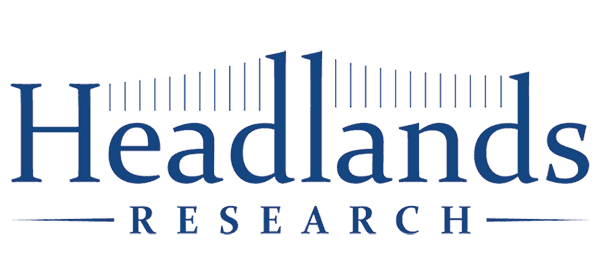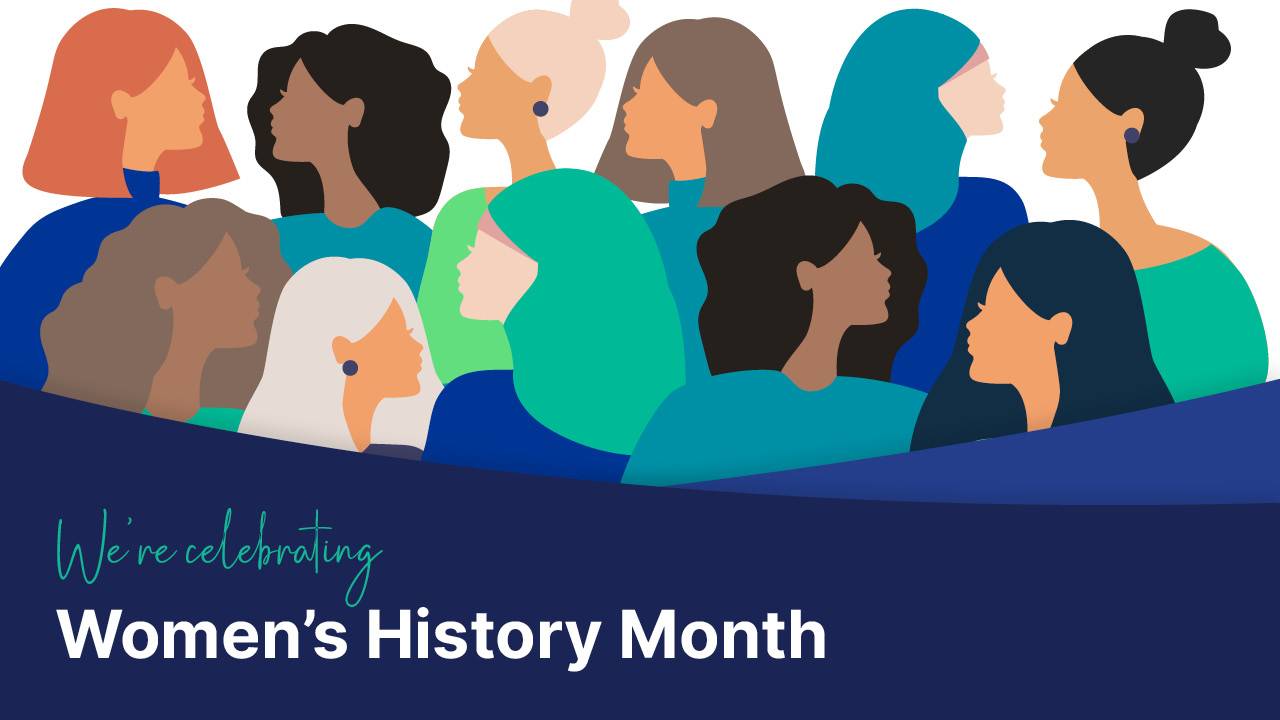In honor of International Women’s Month, we’re shining a spotlight on three researchers at our clinical sites:
- Anna Mozan, Clinical Research Coordinator at Toronto Memory Program, Ontario, CA
- Linda Pao, MD, Principal Investigator at JEM Research Institute, Atlantis, FL
- Rachel Morris, ARNP, Sub-Investigator at Headlands Research Orlando, Orlando, FL
In addition to embodying the mission and values of Headlands Research, they know firsthand the unique strengths that women bring to clinical research, as well as the challenges they may face.
1. Please tell us about your educational background.
Anna Mozan: I’m a registered nurse, and I have a Bachelor of Science in nursing. I graduated in 2010 from the Hebrew University of Jerusalem and earned the Dean's Excellence Award. In 2013, I completed an additional year of a specialty course in operating room (OR) nursing. I’ve been an OR nurse for six years and have been involved in clinical trials for the past three years.
Dr. Pao: I attended Brown University in Providence, RI. I graduated from their seven-year Medical Education Program. I stayed at Brown for my internal medicine internship at the Miriam Hospital and moved to Boston for my neurology residency at Tufts-New England Medical Center, where I served as chief resident. I completed my fellowship in neuromuscular diseases.
Rachel Morris: I received my Bachelor of Science in nursing from the University of Central Florida. After four years as an emergency room (ER) nurse, I earned my Master of Science in nursing at the University of South Alabama and completed a post-certificate residency program specializing in emergency medicine. I've been an ER nurse practitioner for six years and have been involved in clinical research for the past two years.
2. Please tell us about your research focus.
Anna Mozan: I started my research career in Huntington's disease in 2020 and am now working with Alzheimer's disease and Parkinson's disease. This field touches me personally, and I’m very passionate about it. There’s so much that still needs to be discovered and investigated with these conditions. I truly feel that we can bring about real change in the near future in the quality of life for patients and their caregivers.
Dr. Pao: I transitioned from a clinical neurology practice to full-time clinical research quite recently. My research focus mimics my clinical interest in neurodegenerative diseases. I’ve specialized in this field for the last two decades.
Rachel Morris: Here in Orlando, our focus is neurodegenerative research, in particular Alzheimer's disease. It affects so many people, and we want to contribute to finding treatments that help.
3. What was your path to clinical research? What attracted you to the field, and how did you get there?
Anna Mozan: I was always very intrigued with clinical research. However, I never had the opportunity to explore it. Since my dad is a general surgeon, that specialty felt natural to me, and I followed in his footsteps. During the COVID-19 pandemic, I had an opportunity to change my career path from the OR to research. I took it with both hands! I am so grateful for this change and couldn't be happier.
Dr. Pao: I’ve been interested in medical research since high school. That’s when I started researching epilepsy at the National Institutes of Health (NIH) and Walter Reed Hospital, which I continued in college. During my residency at Tufts, our research centered around stroke and the use of recombinant tissue plasminogen activator (rTpa) as well as amyotrophic lateral sclerosis (ALS). At the Mayo Clinic, my research was on congenital myasthenia gravis, a chronic autoimmune neuromuscular disease.
After relocating to Florida, my busy clinical practice limited my opportunities in medical research. I found it cumbersome to attempt to dabble in clinical research while practicing medicine, so becoming a full-time researcher has been fun and extremely rewarding.
Rachel Morris: I've always been drawn to neurology. Providing care for patients with Alzheimer’s disease in the hospital was very hard yet special at the same time. It definitely pulled at my heartstrings. With Alzheimer’s disease, the family loses their patient twice: initially when they lose their memory and again when they actually pass. I love to do whatever I can to provide support, relief, and hope to patients’ families.
4. Have you received a piece of advice from a mentor or colleague that made an impact on you?
Anna Mozan: I’m very fortunate to work with an exceptional group of colleagues. I learn from each and every one of them daily. I am so inspired by our medical director Dr. Sharon Cohen and how passionate she is. It fills me with ambition and hope. My mantra is "the sky's the limit." I try to live those words, and it’s something I teach to my young daughters as well.
Dr. Pao: I have had many mentors over the years that have influenced my choices. I trained in an era when there were few women in the field of neurology, which is something that probably impacted me the most. Mentors such as Dr. Louis Kaplan (with whom I co-authored two papers, found here and here), Dr. Michael Preston, Dr. William Brown, and Dr. Andrew Engel treated me as a young colleague with potential, regardless of my gender. They each pushed my knowledge, curiosity, and goals.
5. Have you been influenced or inspired by any women in your life?
Anna Mozan: On a personal level, I’m inspired by my mother. She taught me everything I know and still guides me to this day. She is a feminist and the hardest-working person I know. I strive to continue her heritage. I am where I am today because of her.
On a professional level, I find Dr. Sharon Cohen to be so dedicated to her work and very knowledgeable and passionate about Alzheimer's disease. She inspires me to be a better professional, and I hope to lead real change just like her.
Dr. Pao: My mother is my greatest inspiration. She was beautiful, smart, and funny. She grew up during war time and poverty after wealth. She believed in saving but was also quite generous. She taught me that, as a woman, I was equal to or better than any man, including my three brothers. She told me "don't cry over spilled milk,” work hard, believe in yourself, and have faith. She also believed that being well-dressed was essential to success.
Rachel Morris: My mother. She’s an angel of a woman, and I strive to be like her every day in every aspect of my life. Additionally, all the women here at Headlands Orlando are phenomenal and truly inspiring.
6. Have you been influenced or inspired by any women that you don't know personally?
Dr. Pao: I’m inspired by these wonderful, strong, and outspoken late-Gen X and millennial women that know what they want and speak their minds. I’m inspired by their leadership and partnership with other women.
Rachel Morris: One woman who I’m inspired by but haven't met personally is Dolly Parton. Not only is she setting records in the music industry but she’s also making an impact in everything from childhood literacy to environmental conservation. She is unapologetically herself and isn't afraid to voice her opinions and stand up for what she believes in.
7. What advantages do you think being a woman provides in medical research? Are there gender-related challenges that you face personally, or that women face generally, in this field?
Anna Mozan: I believe that women bring a unique perspective and a different approach to medical research. Women also face unique obstacles in finding a balance between a successful career and raising a family. I can relate to this struggle personally! I hope to see better support for women to develop their talents to the fullest.
Dr. Pao: Medical research requires meticulous thinking, analytical skills, problem solving, multitasking, and intellect. In the past, leaders have been male. Now, the majority of medical leaders and administrative leaders are women. The biggest challenge for me and many women is time—there’s just not enough time in the day. The struggle between work and family is more difficult as a woman. I do believe clinical medical research allows for a better work-life balance than clinical practice, however.
Rachel Morris: Women may be more at risk for developing certain diseases, and the societal pressure women face to “do it all” puts additional weight on our shoulders. Women are able to connect on these topics and work together to find solutions. Regarding my personal experience, work-life balance and a supportive environment have allowed me to be successful at work while also being present with my family.
8. What advice do you have for other women who are interested in medical research?
Anna Mozan: I would advise other women to find inner strength and motivation to pursue their professional dreams. Never give up, and always have goals in mind. Believe in yourself.
Dr. Pao: It is a great field if you are curious and self-motivated. There are so many opportunities available to women in medical research. In fact, the JEM Research Institute, a Headlands Research site, is predominantly staffed by women.
Rachel Morris: Jump in! It’s a great field, a very hidden field, but a great field. You are truly making a difference in the future of medical care. It’s a great field for work-life balance. And, unlike working in the ER, there’s no work on weekends or holidays!
9. In this study, researchers explored the enrollment of female trial participants for cardiovascular, psychiatric, and cancer studies and found that women were still underrepresented despite government efforts to include more women. What could be done to encourage adequate representation of women in clinical trials?
Anna Mozan: I believe in a whole approach versus a single solution to encourage better women's representation in clinical trials. I would focus on the medical field and geographic areas where recruitment of women is insufficient as a start to creating change. Better community engagement will teach us more about the unique challenges faced by women, so we can address and navigate around them.
Dr. Pao: It may be the lack of study partners or a lack of time. Addressing this during pre-screening would help.
Rachel Morris: We can reduce the stigma of clinical trials as well as address the lack of awareness. By getting out into communities and educating people about clinical research and how it can help future generations, we can encourage better enrollment.
At Headlands Research, we strive to make clinical trials more representative to provide patients of all demographics access to effective treatments. Thank you, Anna, Rachel, and Dr. Pao, for sharing your experiences and inspiring the next generation of clinical researchers! To learn more about Headlands Research, our sites and their team members, and currently enrolling studies, visit https://headlandsresearch.com/headlands-sites/.

